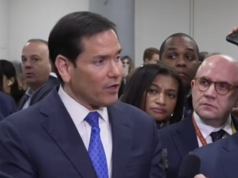We live in a civilization deeply influenced by two dominant ideologies: liberalism and communism. Although often presented as irreconcilable opposites, they essentially share a common core in their rejection of Christianity as the moral foundation of society. These ideologies, which claim to champion freedom and progress, have paradoxically contributed to the disappearance of the artisan and the worker in the West, replacing their autonomy and dignity with a hyper-regulated system that benefits global elites and strips workers of their bargaining power and livelihoods.
Twin Ideologies and Their Common Enemy.
Liberalism and communism, despite their apparent differences, share an implicit goal: to dismantle the Christian values that have historically sustained Western civilization. While they accuse each other of being fascist, antisemitic, Islamophobic, or anti-science, they never criticize one another for their hostility toward Christianity. Instead, they promote other forms of spirituality, such as paganism or secularism. This shared rejection of Christianity is no coincidence; both ideologies view its principles—such as charity, the dignity of labor, and absolute truth—as threats to their worldview.
The Destruction of the Artisan and the Worker.
Through their manifestations in the modern democratic state, both liberalism and communism have systematically eroded the roles of the artisan and the worker. In the past, guilds and brotherhoods offered workers a sense of community, autonomy, and pride. However, these structures were replaced by unions controlled by politicians and eventually absorbed by the state under the pretense of protecting workers from the “exploitative boss.”
This process deprived workers of direct bargaining power and subjected them to a regulatory system that dehumanizes them, reducing them to modern categories like “working class” or “middle class,” which foster artificial conflict between social groups.
Liberalism, with its advocacy of the global free market, has contributed to this extinction by prioritizing corporate profit over the stability of local communities. In countries like the United States, the domestic free market is suffocated by excessive regulations: from permits to modify property to licenses required to start a business, citizens live under constant threat of fines, taxes, and lawsuits.
Far from owning their labor, workers see much of their effort confiscated by the state, while corporations shift production to countries like China, where labor and environmental regulations are virtually nonexistent.
Communism, as represented by regimes like China’s, offers an ideal environment for these corporations: cheap, unprotected labor, no independent unions, and no ethical constraints rooted in Christian values. In this way, liberalism and communism converge in a global system that has decimated Western manufacturing, leaving behind devastated communities and unemployed workers.
Milton Friedman and the Myth of the Free Market.
A pivotal moment in this transformation was the popularization of Milton Friedman’s ideas. The Nobel Prize-winning economist, along with his wife Rose, promoted the notion that a global free market would bring universal prosperity in their book Free to Choose (1980) and the PBS documentary series of the same name.
However, this vision ignored the social consequences of outsourcing industry. Friedman’s premise—that a company’s only responsibility is to maximize profits within the bounds of the law—paved the way for an economic model where ethics are subordinated to profitability. As a result, Western companies moved production to lower-cost countries like China, leaving millions of workers unemployed and entire communities in decline.
Friedman also advocated for drug legalization, arguing that the “War on Drugs” and Prohibition were failures. Yet Prohibition, driven by Christian women in the United States, reduced alcohol consumption from 7.5 to 3.5 liters per capita annually—a relative success that Friedman downplayed.
Today, alcohol consumption in the U.S. has risen to 8.5 liters per person per year, accompanied by a moral crisis fueled by addiction to gambling, pornography, and opioids like fentanyl, which devastate entire communities. The unrestrained freedom promoted by liberalism, devoid of ethical values, leads society toward self-destruction.
A Path Forward: Restoring the Freedom of Trade.
The extinction of the artisan and the worker is not irreversible. The solution lies in restoring local trade freedom, inspired by the principles of the School of Salamanca, which upheld commerce as a divine right regulated by Christian virtues such as justice and charity. This would involve reducing state regulations that suffocate small businesses and workers, encouraging local production, and enacting trade policies that prioritize the dignity of labor over corporate profit.
The “men of commerce,” as the author calls them, have historically played a destructive role by financing wars and promoting unrestrained consumerism. From the Opium War (1839–1842) to the current corporate opposition to trade tariffs, these forces have prioritized profitability over social welfare. It is time to confront them, promoting an economic model that restores the artisan and the worker to their rightful place in society—not as warring classes, but as children of God with a shared purpose.
About The Author











